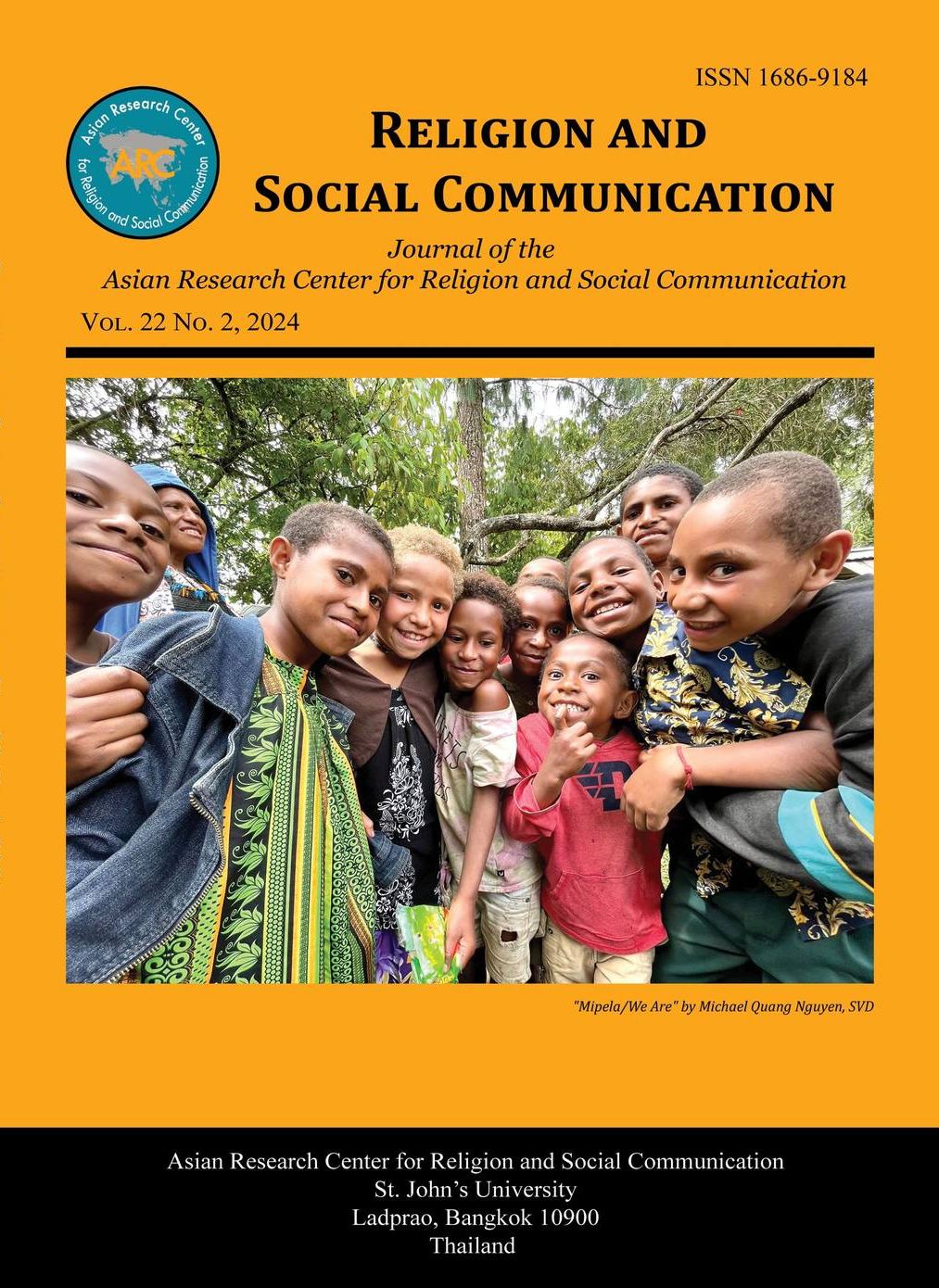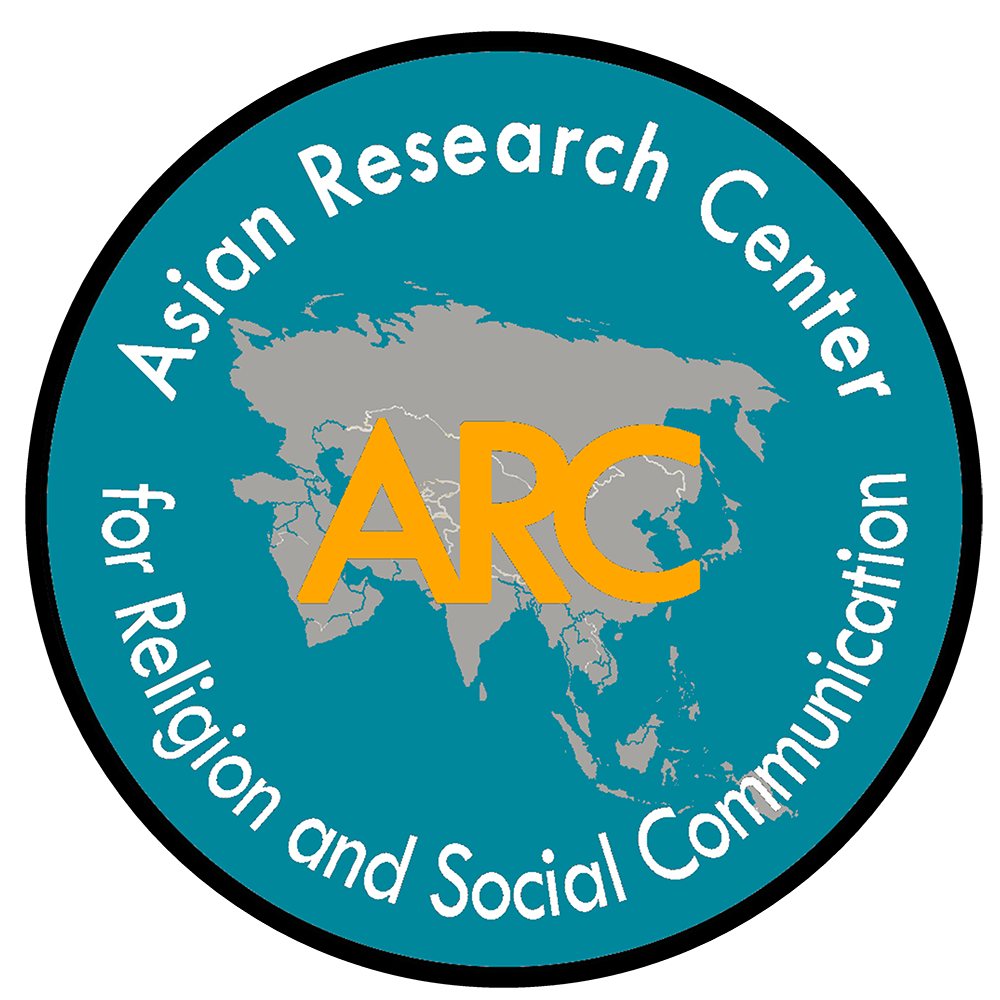[BOOK REVIEW] In Reunion: Transnational Korean Adoptees and the Communication of Family
Download
RELIGION AND SOCIAL COMMUNICATION VOLUME 22, NO. 2 (2024)
ISSN 1686-9184
Author
Charles Aldrin A. Delgado
Book Reviewed
Sara Docan-Morgan. In Reunion: Transnational Korean Adoptees and the Communication of Family. Philadelphia, Temple Univer-sity Press, 2024, 270 pp. ISBN 9781439922842 (pdf).
Pages 481-483
DOI: https://doi.org/10.62461/CAD220224
The family is known to be the most basic unit of society, where everything originates. The family is where a child is endowed with the ideas of the world, such as their sense of morality and the wisdom necessary to participate in other existing social structures. Thus, part of a person’s identity is their sense of family belonging. In such a progressive time, we can ask: what does it mean to be a family? Should our views on family remain in the traditional perspective, where biological connections constitute it, or should we consider the common nuclear identity, which consists of a father, mother, and child? While this may remain true for most of the world, a segment struggles to grasp the essence of family, particularly children who have been adopted. The recently published book by Sara Docan-Morgan, In Reunion: Transnational Korean Adoptees and the Communication of Family, provides us with a comprehensive narrative of the dynamic experiences of adoptees.
The book explores the stories of adoptees who decided to enter into a reunion, searching for their birth families and trying to establish the connection that was once lost either initially or over a sustained period. Docan-Morgan utilizes the real-life experiences of her partici-pants, who are Korean transnational adoptees, and analyzes how their encounters would equate to a broader, perhaps novel, understanding of what makes a family a family. The author was inspired by her expe-rience of being a transnational adoptee herself. Still, it must be commended that she never attempted to make it only about herself despite the present similarities she shares with her participants. By analyzing transcripts and conducting research, the author sheds light on a new perspective of family dynamics: that communication plays a fundamental role in its establishment and formation.
The book is divided into seven chapters. As each chapter unfolds, it further adds to Docan-Morgan’s claim that the family is an established relationship built upon communication. Chapter One provides a historical milieu of Korea and how it became known for exporting children or sending children to Western countries such as America as adoptees. As adoptees grew up, they became aware of their sense of identity and wanted to explore their ethnic roots, thus the desire to be in reunion. This is the pivotal moment for adoptees, as they grapple with the question of who they should consider as their “real” parent – the birth parents who relinquished them while having a valid concern or their adopted parents who have been their family since they were adopted.
Chapter Two discusses why adoptees chose to go to Korea and search for their birth families, often expressing the sentiment “why not?” While many of them do indeed consider their adoptive family as their real family, they feel compelled to fill a gap not in their identity, but for their birth family who lost them. Reunions are commonly por-trayed in media as emotional encounters, but in reality, they are often described as awkward rather than emotional, as adoptees are meeting strangers rather than family members.
Chapter Three dwells on how cultural differences affect reu-nion. In anticipation of such a momentous event, adoptees prepare a lot by studying what is deemed good or bad in Korean culture. However, adoptees find it difficult to process it as it contradicts the Western understanding of the world they have been cultivated in. However, despite these challenges, they continue to communicate with their family as part of their process of meaning-making in the reunion.
Chapter Four delves deeper into Korean culture and notes that language plays a massive role in reunion. The adoptee and the birth family speak different languages, which contributes to the difficulty of feeling included in the family. While some may succeed in learning the Korean language, the majority initially find it an insurmountable ordeal in establishing a relationship.
Chapter Five shifts the focus towards adoptive parents and how their support affects the success of the reunion between their adopted child and their birth family. It was found that adoptive parents often show signs of worry and fear that they may “lose” their child, but they still provide support, recognizing its inherent importance to their child’s identity. Returning to the critical point, it is crucial for the adoptee in the reunion to communicate effectively with their adoptive parents to reassure them that they are still whom they consider as their “real” parents.
Chapter Six deals with how maintaining communication with birth families after reunion affects their overall relationship. It was notable in this part that those who decided to retain their communi-cation with their birth families were able to widen their perspective about who their birth family really is, thus considering them now as part of their “real” family. These developments were able to happen because communication was present throughout. The last chapter dwells on the author’s concluding remarks, which return to the main idea that family is constituted through communication. This part also contained recommendations for making reunions more valuable for those who aim to partake in such a tedious process.
Overall, the book offers significant value and provides fresh pers-pective on the concept of the family, which is greatly needed in our fast-evolving world. Through this scholarly pursuit, may more trans-national adoptees be allowed to seek their birth family so that they can communicate with them until they can rightly claim them again as their family. Thus, we must include more of these topics in our everyday discourses. Every person has a right to a sense of belonging, exclusive to families. This book will remind us to rethink the institutions existing in our society and ponder whether we are providing people with what they need as a part of themselves.





![[Book Review]David Thang Moe. Beyond the Academy: Lived Asian Public Theology of Religions.](https://asianresearchcenter.org/storage/image/2025/06/cover-for-web-1749467974.jpg.160x96.webp)
![[Book Review] Mary Frohlich. The Heart at the Heart of the World: Re-visioning the Sacred Heart for the Ecozoic Era](https://asianresearchcenter.org/storage/image/2025/01/cover-final-1735893887.png.160x96.webp)